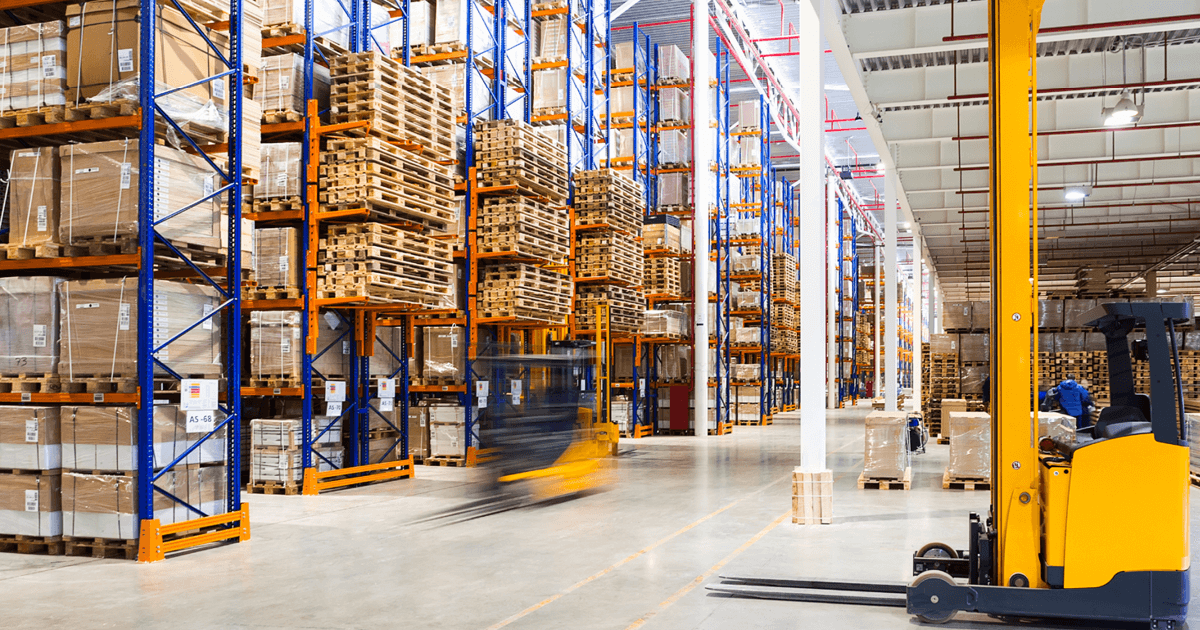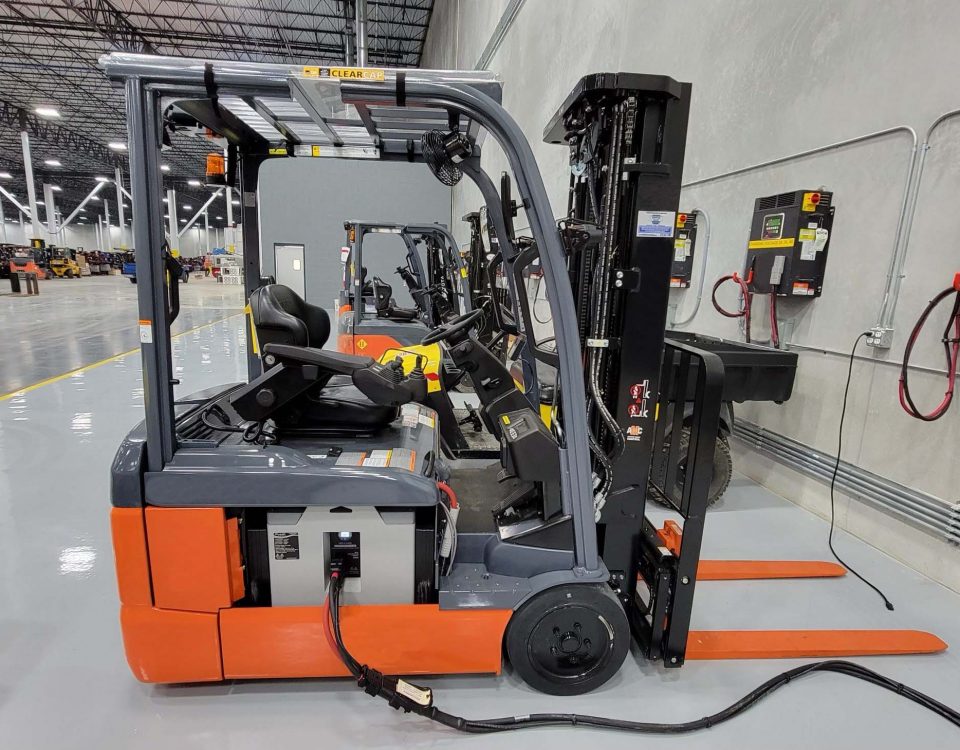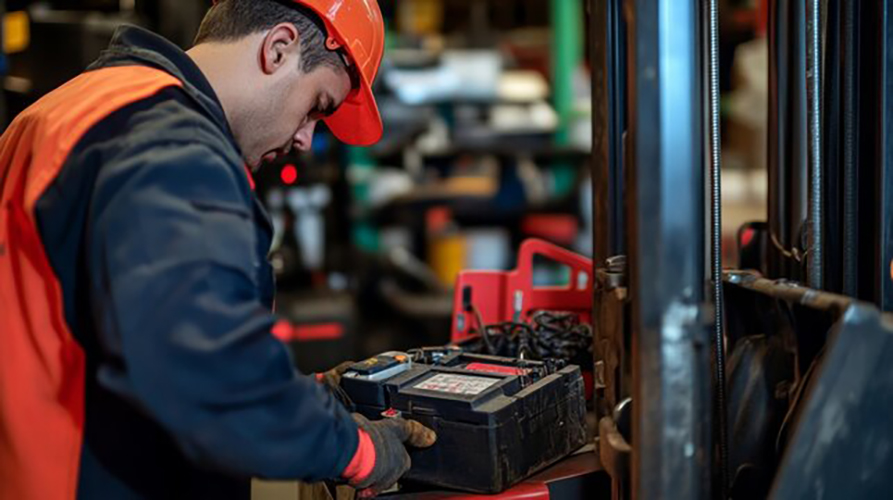As logistics and warehousing operations evolve to meet the growing demands of e-commerce and global trade, the role of technology has become increasingly pivotal. Among these advancements, lithium forklift batteries have emerged as a game-changer, offering unparalleled benefits in efficiency, sustainability, and overall operational performance. This article explores real-world applications of lithium forklift batteries and their transformative impact on the warehousing and logistics industry.
The Shift to Lithium Forklift Batteries
Traditionally, lead-acid batteries have been the go-to choice for powering forklifts. However, their limitations in energy efficiency, maintenance requirements, and environmental impact have driven a shift toward lithium-ion technology. Lithium forklift batteries boast faster charging times, longer lifespans, and reduced energy consumption, making them an ideal choice for modern, high-demand warehouse environments.
Key Advantages of Lithium Forklift Batteries:
Efficiency: Lithium batteries offer consistent power output throughout the charge cycle, ensuring forklifts operate at peak performance without slowdowns.
Reduced Downtime: Rapid charging capabilities and the elimination of frequent battery replacements significantly enhance operational uptime.
Eco-Friendliness: With a smaller carbon footprint and the potential for recyclability, lithium batteries align with sustainability goals.
Lower Maintenance: Unlike lead-acid batteries, lithium batteries require minimal upkeep, eliminating the need for regular water refills or equalization charges.
Application Case Studies
1. E-commerce Fulfillment Centers
E-commerce warehouses are known for their high-speed operations, requiring 24/7 forklift availability to manage inventory, packing, and shipping. A leading U.S. e-commerce retailer recently transitioned its forklift fleet to lithium batteries and saw a 30% reduction in energy costs. The rapid charging capability allowed the company to charge batteries during scheduled breaks, avoiding the need for overnight charging and additional batteries.
2. Cold Storage Facilities
Operating in sub-zero temperatures presents unique challenges for battery performance. Lithium forklift batteries excel in cold storage applications due to their high energy density and resistance to temperature-related capacity loss. A global food distribution company implemented lithium-powered forklifts and reported a 40% increase in operational efficiency, as the batteries performed reliably in extreme conditions without the degradation common in lead-acid alternatives.
3. Automotive Manufacturing Plants
In just-in-time (JIT) manufacturing, efficiency and precision are critical. An automotive manufacturer replaced its lead-acid batteries with lithium models, significantly reducing production line disruptions caused by battery maintenance. The switch improved forklift availability by 25% and contributed to smoother supply chain operations.
Broader Impact on Warehousing and Logistics
1. Enhanced Productivity
Lithium batteries eliminate the need for battery swapping, which can consume up to 30 minutes per forklift. With lithium technology, a single battery can last an entire shift and recharge quickly during breaks, maximizing productivity.
2. Space Optimization
Unlike lead-acid batteries, which require separate charging rooms, lithium batteries can be charged using compact, on-site charging stations. This frees up valuable warehouse space for storage or other operational uses.
3. Cost Savings
Although the upfront cost of lithium batteries is higher than that of lead-acid alternatives, the long-term savings in energy, maintenance, and replacement costs make them a cost-effective investment. Over a typical forklift’s lifespan, businesses can save thousands of dollars per vehicle.
4. Environmental Benefits
As global regulations push for greener supply chain practices, lithium batteries offer a pathway to compliance. Their energy efficiency and reduced waste generation align with sustainability initiatives, while their recyclability further minimizes environmental impact.
Challenges and Considerations
While lithium forklift batteries provide numerous advantages, they are not without challenges. Businesses must consider:
Initial Investment Costs: The higher upfront expense can be a barrier for smaller operations, though ROI is often realized within a few years.
Compatibility: Retrofitting older forklifts to accommodate lithium batteries may require additional modifications.
Battery Management Systems (BMS): Effective monitoring and management of lithium batteries are essential to optimize performance and longevity.
The Future of Lithium Technology in Warehousing
As lithium battery technology continues to evolve, the integration of smart features like IoT-enabled monitoring and predictive maintenance will further enhance their value. Emerging innovations such as solid-state lithium batteries promise even greater energy density and safety, making them a compelling option for future logistics operations.
RICHYE: A Trusted Partner in Lithium Battery Solutions
RICHYE is a professional lithium battery manufacturer renowned for its high-quality, reliable, and performance-driven solutions. Whether for forklifts, AGVs, or other industrial applications, RICHYE’s lithium batteries excel in durability, safety, and cost-effectiveness. As a trusted partner in advancing logistics technology, RICHYE is committed to supporting businesses in achieving their operational goals with cutting-edge energy solutions.
Conclusion
Lithium forklift batteries are reshaping the logistics and warehousing landscape, offering unmatched efficiency, sustainability, and cost savings. By embracing this technology, businesses can future-proof their operations and meet the growing demands of modern supply chains. With manufacturers like RICHYE leading the way, the future of logistics is powered by innovation and reliability.




